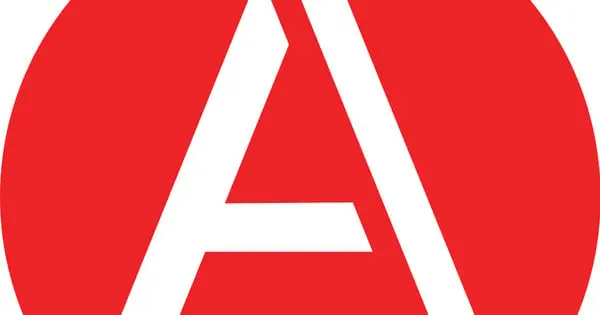Employees at Abrams Books and its division, Abrams ComicArts, have overwhelmingly voted in favor of forming a union, marking a significant victory for organized labor within the publishing industry. The move paves the way for collective bargaining and aims to address concerns regarding wages, job security, and workplace transparency.
The Union Victory: By the Numbers
The mail-in vote, which took place between April 30 and May 21, 2025, saw a remarkable 88% of participating employees voting in favor of unionization. With 79% of eligible workers casting ballots, the result demonstrates strong support for the union among Abrams staff. The union will be officially certified in approximately a week. The employees will be represented by United Auto Workers (UAW) Local 2110, joining the ranks of other unionized publishers such as HarperCollins and The New Press.
According to the National Labor Relations Board (NLRB), of the 78 eligible voters, 43 voted for the labor union, 6 voted against, there were no void ballots, 16 ballots were challenged, and 49 total ballots were counted.
What Prompted the Unionization?
Several factors motivated Abrams employees to seek union representation. Key concerns included:
- Low Wages: Entry-level salaries at Abrams Books have lagged behind those at other major publishing houses in New York City. With an entry-level rate of just $40,000 a year, Abrams’ wages fall significantly short of the $50,000+ offered by the “Big Five” publishers after the HarperCollins strike in 2023.
- Job Security: In recent years, Abrams employees have experienced multiple rounds of layoffs, contributing to a sense of job insecurity.
- Lack of Transparency: Employees have expressed a need for greater transparency in negotiations with management, particularly regarding compensation and benefits.
- Health Benefit Cuts: Leading up to the unionization drive, Abrams employees had been subject to cuts in health benefits.
Sarah Robbins, an Associate Editor at Abrams, emphasized the importance of the staff’s labor: “The work we do at the company is essential. Without our labor, Abrams couldn’t publish any books. We want to be heard and treated with respect, which includes fair wages and better job protections.”
Madeline Morales, a Designer at Abrams, echoed this sentiment: “We’re unionizing because we love our jobs at Abrams and we want to make this a workplace that we can stay and thrive in. Everyone at Abrams deserves to earn a living wage and be treated fairly.”
Who Will the Union Represent?
The newly formed Abrams Union is a “wall-to-wall” union, encompassing a wide range of non-supervisory positions within the company. This includes:
- Editors
- Designers
- Product Managers
- Publicists
- Marketers
- Production Managers
- Managing Editors
- Sales Staff
- Distribution Staff
- Mailroom Staff
- IT Staff
- Finance Staff
The Road Ahead: Contract Negotiations
With the union now officially recognized, the next step is to begin contract negotiations with Abrams management. The union will aim to address the concerns that prompted the unionization drive, including wages, job security, benefits, and workplace transparency.
The Abrams Union has expressed a desire for “a more equitable, ethical, and transparent” publisher. Their goals include:
- Fair wages and benefits that reflect the value of their work
- Improved job security and protections against layoffs
- Greater transparency in decision-making processes
- A more sustainable and just workplace for all employees
Industry Impact and Solidarity
The unionization of Abrams Books is part of a growing trend of labor organizing within the publishing industry. Workers at other publishing houses, including HarperCollins, The New Press, Coffee House Press, and Duke University Press, have also successfully formed unions in recent years.
Lydia Nguyen, assistant editor for Abrams ComicArts, said that the workers at Abrams see themselves as part of a larger movement to put the future of publishing “in the hands of the workers—the people on the ground who build relationships with authors, readers, and booksellers.”
The success of the Abrams Union could inspire workers at other non-unionized publishing houses to consider organizing, potentially leading to further improvements in working conditions across the industry.
Abrams’ Response
Following the vote, Abrams management released a statement indicating their willingness to engage in good-faith negotiations with the union: “Abrams will begin the process of negotiating a contract in good faith. We are now turning our attention to working through next steps. We look forward to […]”
The Broader Context: Unionization in Publishing
The Abrams Books unionization drive occurs amidst a broader wave of unionization efforts across various sectors, including media, cultural institutions, and traditionally “white collar” roles. Several factors contribute to this trend:
- Rising Cost of Living: In cities like New York, the high cost of living puts pressure on workers to demand higher wages and better benefits.
- Increased Awareness of Labor Rights: Growing awareness of labor rights and the benefits of collective bargaining has empowered workers to organize.
- Desire for Greater Workplace Democracy: Many workers seek a greater voice in decision-making processes and a more equitable distribution of power within their workplaces.
Courtney Code, a senior editor who has worked at Abrams for ten years says: “At a time when book bans are on the rise, I am so proud to work in publishing alongside the most creative, collaborative, and hardworking people I have ever met, bringing thoughtful, diverse, and delightful stories into the world. Through unionizing, we can protect our jobs at Abrams, empowering us to continue this essential work.”
Other Recent Unionization Efforts
In addition to the Abrams Books unionization, teachers at the School of Visual Arts (SVA) have also recently voted to unionize. The resulting union will organize under UAW (United Auto Workers.)
Looking Ahead
The successful unionization of Abrams Books marks a new chapter for the company and its employees. As contract negotiations begin, the Abrams Union will work to secure improvements in wages, benefits, job security, and workplace transparency. Their efforts could serve as a model for other publishing houses and contribute to a more equitable and sustainable future for the industry. The developments at Abrams will be closely watched by workers, publishers, and labor advocates alike.










